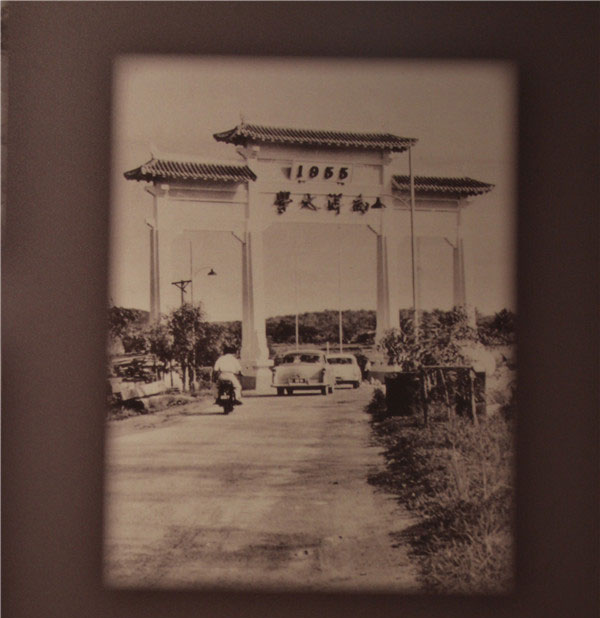Reliving the lives and times of Chinese immigrants
By Zhao Xu ( China Daily ) Updated: 2016-09-10 07:17:01
 |
|
Nanyang University in its early days. [Photo by Tan Wei Ann/For China Daily] |
His hair has turned white - thanks mostly to years of hard work to keep the family afloat.
One thing, however, remains unchanged: The matriarch and her daughter-in-law are still dressed in traditional style, years after their arrival in their adopted home.
"The women tended to be more conservative," says Soon.
"But even they had in time to yield to the need to localize."
The Republic of Singapore was founded in 1965.
And according to Luo the librarian, there were then efforts by the central government at "de-sinicization", in order to mint new a national identity, and to enhance social inclusion in a society that was - and still is - predominantly - ethnic Chinese, with Malays and Indians.
According to Luo, one can get a sense of the profound changes which took place in Singapore by comparing the textbooks used by school students before and after 1965.
"The notion of Singapore was stressed, as the emphasis shifted from Chinese history to local Singapore history," he says.
With this background, the picture of an early local cemetery for Chinese immigrants at the Heritage Center serves as a reminder of the country's contemporary history.
Inscribed on the gravestones are not only the names of the deceased, but also their place of origin, right from the province to the county and the village.
"In the back of their minds, they still wanted to go home," says Soon.
Born in Singapore, Soon is a second-generation immigrant.
"My father died in 1991, at the age of 79 and about 63 years after he took the life-threatening boat ride from the southern Chinese coast to Singapore," she says.
"Like most Chinese immigrants of his generation, dad, for many years, sent every penny he had earned and saved to China. In fact, he always longed to go back, but never did."
Weeks before the death of the old man, his son, Soon's brother, visited the family's home in China's Guangdong Province and managed to locate their father's elder sister."
"My brother took a picture of the old woman, our aunt, who was almost blind by then. Then, he returned to Singapore to show that picture to dad, who cried," says Soon.
"My father passed away a few days later, on October 1, China's National Day."
- Taoism-inspired Chinese calligraphy tours in Singapore
- China's 'Youth Plus' Young Artists Promotion Project opens in Singapore
- Beijing People's Art Theater brings classic to Singapore
- Hebe Tien wraps up 'If' world tour in Singapore
- 'More than Monkeys' on display in Singapore to usher in Year of Monkey
|
|
|
|
|
|
|
|

























 Raymond Zhou:
Raymond Zhou: Pauline D Loh:
Pauline D Loh: Hot Pot
Hot Pot Eco China
Eco China China Dream
China Dream China Face
China Face






